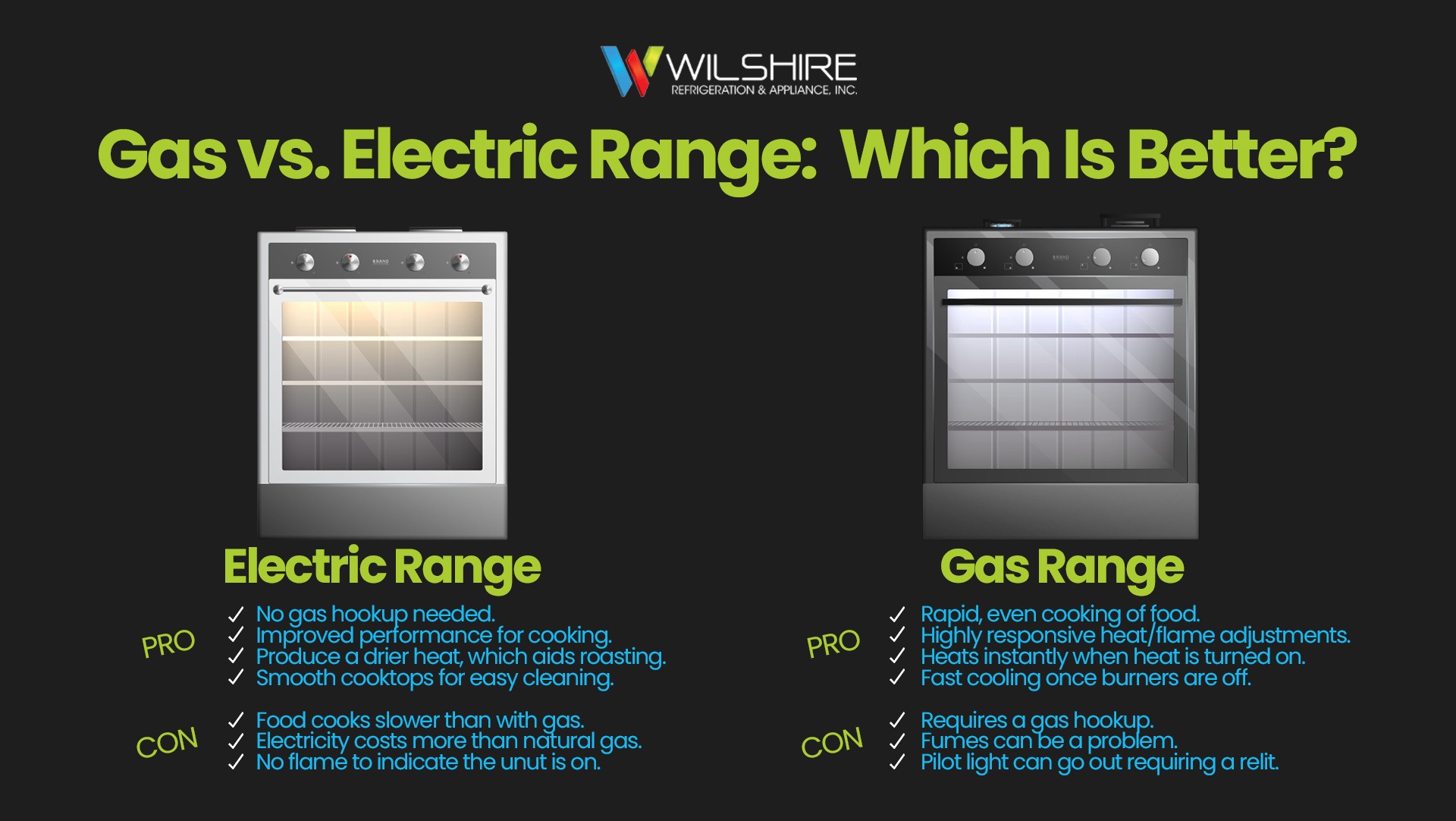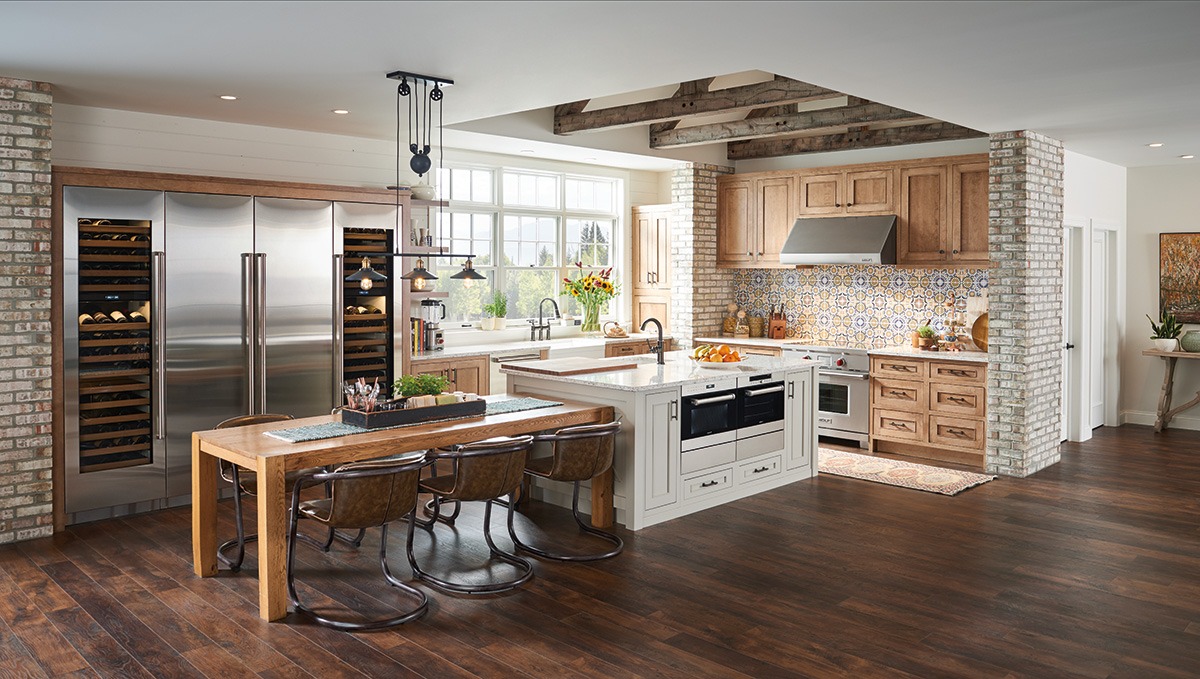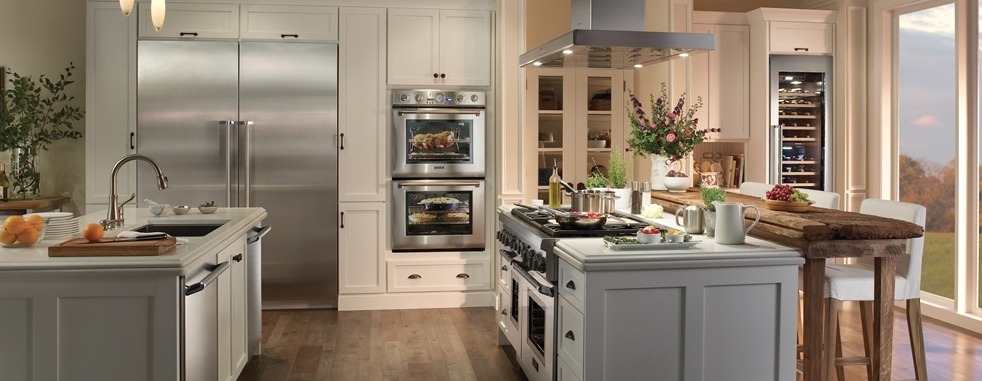Americans are about evenly split as for those who use gas or electric ranges, according to Consumer Reports. Both types have advantages depending on how they are used and what you need. Here’s a comparison of gas vs. electric range cooking stoves, to help see which option may be better for you.
Gas vs. Electric Range Cooking Stoves

Gas Ranges
Pro’s
Featuring a gas cooktop and gas oven, a gas range is known for the following benefits:
- Rapid, even cooking of food.
- Highly responsive heat/flame adjustments.
- Heats instantly when heat is turned on.
- Fast cooling once burners are off.
- Gas ovens preheat and cook food very quickly.
- Easy to clean the removable grates.
Gas stoves lead when it comes to temperature control. The temperature settings, managed by turning the knobs on the appliance, are very precise.
Con’s
Disadvantages of a gas range include:
- Requires a gas hookup, so installation may require spending for a gas line.
- Cannot be used where a natural gas connection isn’t available.
- The pilot light can go out, requiring it to be manually relit.
- Fumes can be a problem if there’s inadequate ventilation.
- Open flames can create safety hazards when cooking.
Electric Range
Pro’s
Electric ranges use a cooktop and oven that are electrically powered. The benefits of having one include:
- Do not require a gas hookup for installation.
- Improved performance for baking, broiling, simmering, and high heat.
- Produce a drier heat, which aids roasting and broiling.
- Newer models have easy-to-clean, smooth cooktops.
- Pots and pans are more stable on a smoother surface.
- Efficiency, as more energy transfers to cooking food (74% vs. 40% for a gas range).
Con’s
Despite their performance perks, electric ranges have cons such as:
- Despite heating more efficiently, they use more energy than their gas counterparts.
- Electricity costs more than natural gas.
- No flame to indicate the unit is on, which can increase burn risk.
- You can’t use the range during a power outage.
- It’s easier to damage a cooktop if something drops.
- In general, food cooks slower than with gas.
In general, electric stoves are safer. There is no risk of a cloth or paper towel catching fire. Not to say you can’t get burned on an electric range, but there’s certainly peace of mind knowing you won’t have a gas leak.
What’s Better for Me?
To determine whether to go gas or electric, first look at what connections you have. Everyone has electrical outlets; not everyone has a gas hookup. If not, you’ll have to spend on installing one and getting a new range. Even if you have a gas hookup and want to use propane, you’ll need to purchase a conversion kit. A gas range is fine if this isn’t a problem.
If you prefer more precise temperature control, you may want to stick with gas. However, if you love baking and appreciate a quick wipe down, electric may be better for you. As far as baking/roasting speed, both gas and electric ovens are capable of convection cooking. Another perk is some electric cooktops have dual/triple heating elements that accommodate pots and pans of varying sizes (however, some gas cooktops accommodate oversized cookware with oval-shaped burners).
Shop for Wolf Ranges and Ovens at Wilshire Refrigeration & Appliance, Inc.
We offer some of the top ranges and ovens on the market, including dual fuel and induction ranges from Wolf and dual convection ovens from Wolf Appliances. High-quality installation and repair services are available throughout Southern California and Las Vegas. Same-day service is available as well. Request service online or call 800-427-3653 to learn more.




